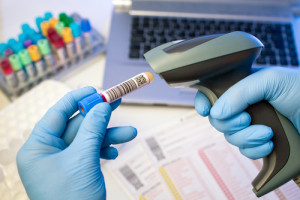
Biotechnology is the creation of technology through the use of living organisms and systems. The field of biotechnology often encompasses the more specific subject of bioengineering. What, then, can you do with a degree in biotechnology? This article explains that and more, including examples of schools that offer biotechnology degree programs and the types of careers you can expect to qualify for once you earn a biotechnology degree.
Biotechnology Degree Programs
If biotechnology sounds particularly appealing to you, then you should consider earning a biotechnology degree after high school. While in high school, consult with your guidance counselor for advice on classes you can take that will help prepare you for future education in biotechnology. Advanced biology courses may be helpful. Your guidance counselor may also be able to assist you in finding colleges and universities with exceptional biotechnology programs. Just a few schools with noteworthy biotechnology degree programs are described here.
Worcester Polytechnic Institute (WPI)
The Biology and Biotechnology Department at WPI offers undergraduate and graduate students alike the opportunity to earn degrees that expand their knowledge and experience in the world of biotechnology.
Students work together with faculty to gain hands-on experience in courses like Simulation in Biology, Biodiversity, Microbiology, and more to build their abilities to solve problems with the use of both biology and technology.
Research fuels the education of students at WPI, whether they are learning about conclusions reached by researchers of the past or they are partaking in their own research projects.
Graduate students focus their studies on more extensive theoretical and experimental research projects to become more advanced in their particular fields of study.
University of California – Davis
Students at the University of California, Davis campus can earn a Bachelor of Science in Biotechnology in four years.
With experienced and knowledgeable faculty, the University of California – Davis is an excellent place for undergraduate students to learn ways in which they can improve human health and the growth of agriculture by studying a mix of biological systems and organisms and the reactions of applying organisms to those biological systems.
Students who major in biotechnology here can potentially land careers in areas anywhere from health care to environmental analysis and remediation industries.
Upon earning a bachelor’s degree in biotechnology from the University of California – Davis, it is not uncommon for students to go on to pursue master’s degrees in subjects like genetics, molecular biology, and medicine.
Brigham Young University
The Department of Plant and Wildlife Sciences at Brigham Young University offers undergraduate students the opportunity to earn a Bachelor of Science in Genetics and Biotechnology.
Students use advanced laboratory equipment to participate in research projects to help faculty make breakthrough discoveries in association mapping, gene expression analysis through the use of RNA, and more.
Both international and national agencies fund projects at Brigham Young University. Students are also able to gain experience through internships in connection with the school at locations around the globe, everywhere from Texas to Ecuador.
Online degrees in biotechnology are also available for people who want to further their education, but their schedules prevent them from attending on-campus classes regularly. Many colleges and universities offer online degree programs to meet the needs of students with hectic schedules.
Types of Biotechnology Degrees
There are a wide variety of degrees that you can obtain in biotechnology: certificate, associate, bachelor’s, master’s, Ph.D., and dual degree.
Certificate programs in biotechnology
If you just are looking to generally study biotechnology, without a specialization, then you may want to look into a certificate in biotechnology. A certificate program will require a few prerequisites and will teach biotechnology in a short time period.
You will generally obtain about 15 to 25 credit hours in a biotechnology certificate program and may complete it between two to four full-time semesters.
Course examples:
- Basic Concepts of Biotechnology
- Biotechnology Targeting
- Studies in Manufacturing Processes
- Biological Computation
- The Molecular Basis of Carcinogenesis
- Food Biotechnology
Associate degree programs in biotechnology
The completion of an associate degree in biotechnology will generally require about 60 credit hours. Some of these credits may count toward other majors or concentrations.
Generally, you will have to complete an internship within the industry. All in all, obtaining an associate degree in biotechnology will take about four full semesters, or two years.
Many graduates with an associate in biotechnology become a lab assistant or technician.
Bachelor degree programs in biotechnology
Biotechnology has become extremely specialized, so it’s hard to find a college or university offering a bachelor’s degree in biotechnology nowadays. Generally, you would obtain your bachelor’s in chemistry, biology, or a related field, and then go on to obtain your master’s in biotechnology.
Bachelor’s degrees that do exist in biotechnology are usually stressing a very specific type of biotech.
Online degree programs in biotechnology
It is possible to earn a master’s degree in biotechnology online. These will sometimes include a residency or work at a local lab, so you will still gain the necessary hands-on experience for biotechnology.
If you are already a biotech professional, an online degree may be the right option for you. That way, you can still continue your work, but also continue your education.
Careers in Biotechnology and Genetics and Biotechnology Salary
While you are in the process of earning your degree, you should be seriously considering what career path you plan to travel in the near future.
Choosing a specific career path before graduating with your degree will help you shape your education around that particular career. You can take courses that will help increase your knowledge in that area so that you may land a job quicker in the field of your interest.
This section provides a select few of the many career paths you have to choose from with a biotechnology degree.
Entry-level careers in biotechnology
After earning a bachelors degree in biotechnology, you may qualify for at least one of the positions described below.
Bioproduction Operator
A bioproduction operator controls machinery that manufactures and/or packages products in the biotechnology industry. He or she may also handle the shipping of these products.
Also, bioproduction operators may be responsible for ensuring the quality of the finalized product. Depending on the company, bioproduction operators are not always required to possess a bachelors degree in biotechnology or related field.
Some companies accept individuals who have high school diplomas, but a bachelors degree is particularly helpful, as is the ability to communicate and work well with others.
Bioproduction operators may earn a salary of around $30,000 annually, based on education and experience levels.
Biotechnology Lab Technician

A biotechnology lab technician often cares for lab equipment, including setting up, cleaning, and putting away equipment used by researchers and/or faculty and students.
He or she may also obtain samples of substances being studied, including everything from blood to bacteria, for researchers. Biotechnology lab technicians may also perform basic experiments and analyze and report results.
Biotechnology lab technicians possess bachelor degrees in biotechnology, biology, or other similar fields. They also have exceptional organizational, research, and analytical skills.
Biotechnology lab technicians may earn an annual salary of around $38,000, based on education and experience levels.
Advanced Careers in Biotechnology
With further experience in the field of biotechnology or after earning a masters degree in biotechnology, many more career opportunities will become available to you. Some of them are described here.
Bioservices Scientist
A bioservices scientist may work with pharmaceuticals or in another medical field to help provide other scientists with the technical support necessary to perform experiments related to hematology, oncology, immunology, and more.
Bioservices scientists possess master degrees in various life sciences, including biology and biotechnology. They typically have excellent problem solving, analytical, and communication skills in addition to the ability to organize data.
Bioservices scientists may earn around $50,000 annually, based on education and experience levels.
Biochemist
A biochemist studies the chemical aspects of biological systems by using state-of-the-art research technology. He or she spends most of his or her day in the laboratory performing these studies.
Biochemists may perform applied research or typical academic research that helps reach a common goal. For example, some biochemists who focus on applied research spend their time researching ways to develop new drugs to treat a particular illness.
Biochemists typically possess a PhD in subjects like biochemistry and biotechnology, among others. They possess outstanding research and analytical skills, in addition to excellent verbal and written communication skills.
Some employers also require that applicants have at least a few years of experience working in the field.
Biochemists may earn a salary of around $80,000 annually, based on education and experience levels.
Additional Career Options
- Bioinformatician
- Biotechnical Scientist
- Consultant
- Director
- Industry Researcher
- Investigator
- Professor
- Project Leader
- Senior Scientist
Companies that Hire People with Biotechnology Degrees
Companies around the globe look to hire people who have earned biotechnology degrees to improve their businesses. Jobs in biotechnology are not always easy to come by, so it is crucial that your resume is impressive. Experience in biotechnology from an internship or one or more research programs may be particularly attractive. Below is a brief list of companies that have jobs related to biotechnology and more.
AllCells – headquarters in Alameda, CA; hires positions for bioservices scientists, project managers, purchasing agents, etc.
Alexion – locations around the globe; hires positions for transplant medical directors, area managers of hematology, biotechnology regional account managers, diagnostics specialists, etc.
Hyperion Biotechnology, Inc. – located in San Antonio, TX; hires positions for biomedical engineers, laboratory technicians, bioenvironmental engineers, physiologists, etc.
Battelle National Biodefense Institute – located in Frederick, MD; hires positions for bacteriology research assistants, acquisitions managers, genomics principal investigators, etc.
Becoming a Biotechnologist
Still wondering, “What can I do with a biotechnology degree?” Keep in mind that this article is merely a stepping stone in your journey to research potential careers for your future. Biotechnology is not a widely expanding field, so job prospects are not exactly overflowing the job market. If you build a fancy resume with impressive experience, you’re sure to qualify above the average biotechnologist.



Pingback: Feeling Lost? Read This Ultimate Guide to Finding Your Ideal Career - The Stockholm Network The Stockholm Network
Pingback: Links of Interest to Someone I Know | mattkolon.com
Please reply me